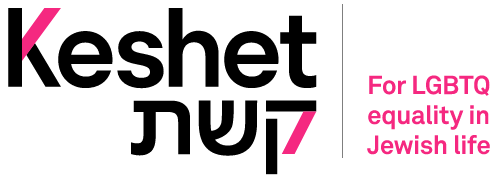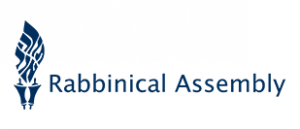Ki Tetzei: Storytelling
Sermon given September 6, 2025
Once upon a time, there was a young child named Rachel. Now, Rachel was very tall for their age and very loud for their age and had a tendency to ask a lot of questions, especially to try and get out of going to sleep at night. Their parents realized that this was not a child who could be calmed and quieted by “classic” bedtime rituals.
And so, these parents-- who, of course, were my parents-- began inventing new bedtime rituals. They invented “The antonym game” and “the synonym game” and the “oops, I’m going to pretend to forget lyrics so Rachel memorizes them” game. And I loved these games, I really did. But more than the games, I loved it when my father gave up on trying to read me the kids books we were so frequently gifted-- Berenstein Bears, Thomas the Train Engine-- and began reading to me from books he liked. You know, normal books that five-year-olds like to read. Books like “Welcome to the Monkey House” by Kurt Vonnegut.
I vaguely remember sitting at circle time in Kindergarten and the silence that fell when the teacher asked me what my favorite book was, and I said “Isaac Asimov’s Robot Stories”. It was, to be fair, a similar silence to when she asked me what my favorite card game was, and I said, “Euchre”.
… in retrospect, I don’t think I ever had any chance of being normal. But I digress!
I learned to LOVE those stories my father would share with me. He had one story in particular, Robot AL-76 Goes Astray, which he read to me over and over. It became, in many ways, “our story”. To this day, in fact, it comes up in conversation, and has become part of the lore of who I am, and of who we are as a family.
I’d be willing to bet that some of you here today, or watching online, also have a favorite story that you were told as a kid, a story that you asked for over and over.
These stories become a part of us. They become a framework for how we view the world and filter information, about how we organize new events, and how we tell right from wrong-- or learn to navigate the inevitable gray space in between.
Of course, though, it really matters what lessons we internalize from each story. It matters who tells the story, and it matters how they tell the story. For example, my beloved robot story could be either a curious, fantastical sci-fi romp-- an encouragement of imagination-- or it could be taught as a warning about AI gone wrong, as a story of fear of change. How I internalized it had a lot to do with how my Dad told it, in a way full of love and excitement and safety-- and that’s true with any story. The focus, and the spin, matters.
Similarly, our Torah has an abundance of stories that we hear over and over and over again each year. The book of Genesis in particular is chock-full of memorable tales and names, ones that we teach to our children and hear at the holidays. But as generations have passed and Judaism has evolved, these stories have revealed multiple possible interpretations and takeaways. Stories like the binding of Isaac, the destruction of Sodom and Gomorrah, and even Adam and Eve in the Garden of Eden can mean very, very different things depending on how we tell them. As caring Jews, then, it behooves us to be intentional about which possible takeaways we focus on.
And in this week’s Torah portion, particularly in the part that we read here today, we are urged to remember two specific, defining stories for us as a people. First, in Chapter 24, verse 22, our text says:
וְזָ֣כַרְתָּ֔ כִּי־עֶ֥בֶד הָיִ֖יתָ בְּאֶ֣רֶץ מִצְרָ֑יִם
Remember that you were a slave in Egypt!
And then, a chapter later, the text says:
זזָכ֕וֹר אֵ֛ת אֲשֶׁר־עָשָׂ֥ה לְךָ֖ עֲמָלֵ֑ק בַּדֶּ֖רֶךְ בְּצֵֽאתְכֶ֥ם מִמִּצְרָֽיִם
Remember what Amalek did to you as you escaped from Egypt!
These two commandments urge us into the creation and nurturing of collective, cultural memory around two traumatic events-- the kind of memory that imbues our liturgy, our values, our fears, and our goals as a people. And those memories are transmitted through storytelling-- both in formal settings like Torah readings and the annual Seders, but also in how we apply our takeaways from these core stories to our own lives and the reality of being Jewish today.
The question for each generation of Jews, then, is how should we tell these stories, and what is the takeaway we want our communities, and our children, to learn from the way we talk about them?
Both the story of our slavery in Egypt and the horrific attack by Amalek on our most vulnerable community members are stories of pain-- stories of injustice that was wrought against our ancestors through no fault of their own. Pharoah and Amalek have become code words for evil actors throughout history. In the Purim story, which would have taken place centuries after the Exodus from Egypt, our tradition teaches that Haman was a descendant of Amalek. In modern times, the rabbinic organization T’ruah uses a particularly catchy phrase on their posters which also invokes this imagery, saying “Resisting Tyrants since Pharoah.” Following October 7th, many Jews drew clear parallels between the evil perpetrated by Hamas and the evil perpetrated by Amalek, as both attacked children and the elderly.
This is all to say that one of the clear takeaways from both stories is that human beings not only have the capacity to harm each other, and to make sweeping, destructive, and evil statements and take sweeping, destructive evil actions against other groups, but also that we, as Israelites and as Jews, have again and again been targeted by this kind of evil, over millennia.
But again, our question today is-- what is the takeaway we, today, want our communities, and our children, to learn from the way we talk about these stories?
One option is to tell these stories as a way of identifying evil, of identifying that which is wrong in the world-- wrong action, wrong speech--and remembering that we have been attacked by evil many times. We can tell these stories to honor the memories of lives lost, and to affirm that we condemn the actions of those who perpetrated these evils. We can tell these stories in the hopes of gaining sympathy and empathy from allies, and use these stories as a rallying cry as we resist antisemitism and Jew hatred, and fight against those who perpetrate it.
And this is a good and solid option. It is an honest option. It is a human option. It is an option we can and should do, and will continue to do as a synagogue and wider Jewish community.
But if this option is the only takeaway we have from these stories, it also doesn’t go far enough.
I say this because our very Torah portion-- the same one that, today, reminds us clearly that we must remember the stories of how we have been mistreated-- that same Torah portion embeds these stories into a list of guidelines for how we are, in turn, supposed to treat others.
In the Talmud, Rabbi Yohanan teaches us in Masekhet Berakhot that when multiple commandments are smuchin-- that is, next to each other in the Torah-- it is not an accident. We can draw inferences and implications, he ruled, from such juxtapositions.
So, that is exactly what we are doing here today. Consider what our Torah portion just said:
“You must not withhold wages from the destitute. You must not pervert the judgement or choices of the stranger. You must not take a cloak from a widow. You must remember that you were a slave in Egypt.” And then:
“When you harvest your field, you must leave part for the hungry. When you pick your olives, you must leave some for the hungry. When you pick your grapes, you must leave some for the hungry. You must remember that you were a slave in Egypt.” And then:
“Do not have two weights in your pocket of different measures, one for buying and one for selling. Be honest in your dealings with others, because not to do so is an abomination. Remember what Amalek did to you as you escaped Egypt.”
As we can see, a pattern begins to emerge. The Torah seems to be suggesting that part of remembering a story must be applying the negative life lessons learned from that story to our own positive actions towards others.
Rashi takes it even a step further, saying that the admonitions to remember in this context show that God redeemed us from Egypt, and saved us from slavery, so thatthat we would learn from it to do the right thing, even if it’s difficult. עַל מְנָת כֵּן פְּדִיתִיךָ, Rashi imagines God saying. This is precisely why I saved you.
Through this lens, when we take the command to remember the stories of being slaves in Egypt and being attacked by Amalek in the context of their surrounding scripture, a broader and deeper and more personal takeaway begins to emerge.
This takeaway tells us: Yes, we have been treated badly. Yes, antisemitism is an ancient and awful thing, and a thing we also struggle with. Yes, we must fight that antisemitism, and we must talk to our children about it.
And.
At the same time, memory must become action.
We must teach our children never to mistreat or condemn or attack an entire group, “othering” them in a way that dehumanizes them and takes away their worth and dignity, because this is what Pharoah and Amalek did to us, and it was wrong. We must also teach our children not to hold their own worth as being greater than that of any other on this Earth, and to defend those whose worth is not being respected. We must teach them to identify when others are being mistreated, and then do something about it, because we were slaves in Egypt, and we were victims of Amalek, and nobody stood up for us. We must teach this, and we must model it, not as a one-off, but as a way of life.
And for us today, this can feel like a big ask. Because right now, on the one hand, the Jewish community is actively under attack. We need support from others and we are not getting enough of it.
However. Our current pain does not take away from us the urgent need to put our memory into action and help others. In a lot of places in this world and in our own country, other people are also living surrounded by violence, living without access to sufficient nutrients or education, living without dignity, and also being targeted because of their nationality or religion.
And although we are hurting, we must help. Because we know what it means to be victims, we must help. It’s ok if this feels overwhelming, but as our tradition teaches, our job is not to finish the work, but also not to turn from it.
The first step is realizing the incredible brokenness in this world. Then, we must recognize our place within this brokenness-- both as victims and as potential actors, either in making the situation worse or in helping to heal it. And then, the next step is choosing a way to act on this brokenness, to act by speaking out, donating, campaigning, organizing, learning, reading, praying-- by doing any and all of the things we want others to do when we, as Jews, are attacked.
That is truly remembering. That is how we can show that we truly remember what it is like to be slaves in Egypt, and to be attacked by Amalek. That is us saying: we remember, and so we are resolved to never, ever, EVER let this happen to anyone else, ever again.
This is OUR story. Let’s own it, and hold it, and feel it… and then, let’s learn from it and act on it.
Shabbat shalom.



